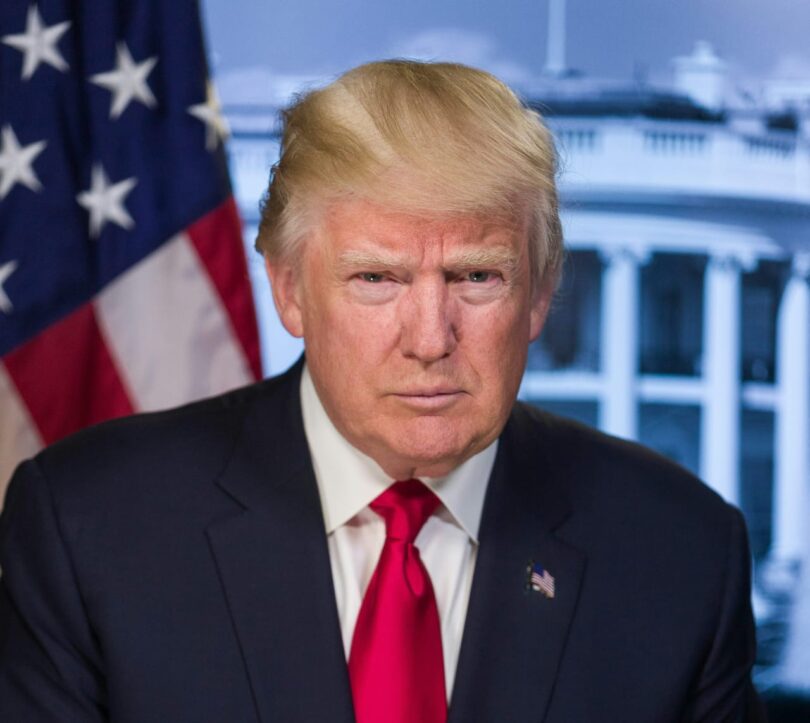By Imran Kamyana
In this era of globalization, political and social changes in one country inevitably affect other parts of the world, even if that country appears to have minor economic and geographical significance. This understanding helps explain why, for the past several months, the eyes of the world have been fixed on the upcoming U.S. presidential election on November 5. As the largest economic and military power in history, U.S. domestic politics has held global importance for the past eight decades. However, recent conditions—including a general economic crisis, a shifting balance of power on a global scale marked by the relative decline of Western imperialism compared to China, and the increasing chaos and polarization in American society—have made this electoral race more controversial and complicated than ever.
Historically, the strength and confidence of the American ruling class have been expressed through their profound hegemony over the country’s politics and state. This dominance has been underpinned by several factors, including America’s unprecedented economic development, a deep and extensive industrial base, technological superiority, formidable military power, and global influence. Within this context, the American ruling class has long employed the two-party system as a key tool of its political power. Almost all of America’s political history has revolved around the competition between two dominant parties.
The current two-party system was established in the 1850s, with the Republican and Democratic parties emerging as the two primary political trends. In bourgeois intellectual discourse and journalism, the Republican Party is generally categorized as ‘right-wing,’ while the Democratic Party is labeled ‘left-wing’. However, this distinction can reasonably be deemed superficial and misleading. The essence of American politics is rooted in deception, as noted by Gore Vidal, a prominent left-liberal journalist and intellectual, nearly five decades ago:
There is only one party in the United States, the Property party … and it has two right wings: Republican and Democrat. Republicans are a bit stupider, more rigid, more doctrinaire in their laissez-faire capitalism than the Democrats, who are cuter, prettier, a bit more corrupt – until recently … and more willing than the Republicans to make small adjustments when the poor, the black, the anti-imperialists get out of hand. But, essentially, there is no difference between the two parties.
If we examine the broader context, not only the United States but also much of the Western capitalist world has operated within a two-party system since the Second World War, with limited opportunities for ‘outsiders’—except in unusual circumstances or exceptional cases. This system largely reflected the political manifestation of the post-War economic boom. This seemingly eternal boom produced enormous profits and massive economic growth, albeit at the cost of unprecedented destruction and bloodshed from the War, which ultimately lifted capitalism out of the Great Depression of 1929.
In the peculiar circumstances of the post-War consensus, there was a capacity to manage society using traditional, relatively undisputed policies—primarily Keynesianism and its unemployment-inflation tradeoff—from both the right and the left without significantly challenging the boundaries of the bourgeois system. The ideological and political dominance of the prevailing liberal order was much deeper than it is today, allowing the imperialist ruling classes to install their chosen political representatives—astute, skilled and trustworthy individuals, shaped by decades of education, training and experience—to maintain the system with minimal disruption.
However, the first cracks in the post-war liberal order began to emerge in the late 1970s, primarily due to a decline in the capital’s rate of return (profitability). Initially, these cracks were attempted to be filled through the onslaught of neoliberal policies. Additionally, the collapse of Stalinism in Russia and Eastern Europe, along with the onset of capitalism’s restoration in China, provided ideological and economic support to Western imperialism. Nevertheless, figures like Margaret Thatcher and Ronald Reagan embodied a process that would become increasingly pronounced in the following decades.
The economic downturn that began with the global financial crisis of 2008 represented a significant escalation of this process, severely undermining the economic foundations of classical bourgeois politics—whether the former social democratic tendencies of the left or the traditional liberal parties of the right. This erosion of the political landscape is why, since 2011, new left movements—although reformist in most cases—have emerged alongside populist and far-right parties and figures across various countries, some of whom have attained power or come close to doing so.
Donald Trump, essentially a representative of an illiberal and unconventional right-wing, exemplifies this trend in the United States. Such figures, who in many cases have gained significant influence in both the state and society, attack the established order from the “right” and seek to address the crisis of capitalism through increasingly reactionary, bigoted, ruthless, shortsighted and often racist policies, posing significant challenges to serious policymakers of imperialist capitalism (see Project 2025).
Trump’s popularity reflects the increasing polarization and agitation within American society, where he relentlessly attacks the “establishment” with his reckless, arrogant, self-righteous and at times outright abusive rhetoric and behavior. In this manner, he tears away the hypocritical cloak of civilization, democracy and human rights that often obscures the disgusting realities of the exploitative and oppressive system known as capitalism.
It is no coincidence that reasonable comparisons can be drawn between the personalities of Donald Trump, Jair Bolsonaro and Imran Khan. Moreover, there have been surprisingly close parallels in the events following their ouster from power. In this context, outgoing U.S. President Joe Biden has clearly warned that the upcoming elections may not be peaceful. This situation is particularly alarming in light of the July 13 incident, when American society seemed as close to a potential civil war as was the bullet’s distance from Trump’s skull.
Ultimately, Trump, like his counterparts worldwide, is not a trusted, far-sighted representative of imperialism. Instead, he is a pragmatic and “practical” capitalist who views the world through a narrow lens of simple arithmetic, regarding the broader ambitions of U.S. imperialism as secondary at best. A similar case can be made for his domestic ally, Elon Musk, who, unlike the bourgeoisie of earlier eras—which typically attempted to appear humble, ‘non-political’ and non-controversial, mostly operating behind the scenes—behaves like a spoiled, flamboyant teenager. Recently, he has been distributing $1 million a day to Trump supporters.
From Argentina to Brazil, and from the United States to Pakistan and India, the emergence of such tendencies highlights a crisis of bourgeois leadership, making it increasingly clear that running capitalism in traditional ways is becoming untenable. The outdated and ineffective approaches of both left and right reformism are likely to lead to more radical movements emerging on opposite sides of the political spectrum.
Without delving into the technicalities of the U.S. election, it is sufficient to note that—despite kicking Biden out of the race, and bringing in Kamala Harris as a Black woman and a relatively sharp, present-minded and popular candidate—the race against Trump is poised to be a close contest. The failure of the Democrats to rein in Israel in the current geopolitical climate has also significantly undermined their credibility. While there is a possibility of Trump winning, he is unlikely to accept defeat easily.
In any case, the unfolding events point towards a new crisis, adding another layer to the overarching polycrisis of capitalism. CNN, adopting a tone of irritation and dismay, remarked on the closing of Trump’s electoral campaign:
Trump on Sunday delivered a screed that may augur the most extreme presidency in modern history if he beats Democratic nominee Kamala Harris on November 5… Before he spoke, some of the ex-president’s top supporters flung race-based and vulgar rhetoric. Former congressional candidate David Rem called Harris the “antichrist” and “the devil,” while others lashed out at Hillary Clinton, “illegals” and homeless people. Comedian Tony Hinchcliffe called Puerto Rico a “floating island of garbage.”
Much of Trump’s speech brimmed with falsehoods and exaggerations. It was exactly the kind of rhetoric that the Harris campaign believes could prompt moderate voters and disaffected Republicans to choose the vice president. But it also represents a bet from the Republican nominee that he can drive out a huge base turnout and activate voters who don’t normally cast ballots but who agree with his hardline politics…The ex-president’s blistering anti-migrant rhetoric ranks alongside the most flagrant demagoguery by a major figure in any Western nation since World War II.
The mainstream liberal media outlet also described America as “a nation on edge,” with “Trump’s dark appearance” heightening the intense sense of tension that has blanketed the country just a week before an election that may represent a “national turning point.” It is worth noting that while the Trump campaign may have disavowed the “joke” made by Tony Hinchcliffe, Trump’s own views on the countries devastated by decades of looting, plundering and brutal interventions by imperialism—resulting in massive, desperate immigrations to the U.S. and Europe—have not been significantly different.
All of this reflects the obsolescence and decay of a social system that is plunging humanity into chaos, bloodshed and suffering time and again. But the nauseating manifestations of a system’s crisis cannot be effectively battled within the confines of that same system, and emancipation from it is clearly impossible without radically transforming the current arrangements of economy, society, politics and the state through revolutionary means.






